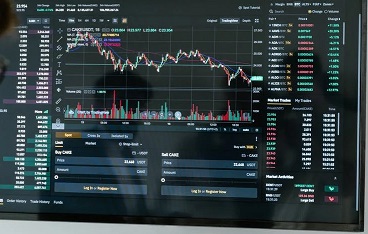US stocks rallied Wednesday and Treasury yields retreated as investors were buoyed by a surprise decision by the Bank of England.
The S&P 500 rose nearly 2% as the Dow Jones Industrial Average was up nearly 550 points for a 1.9% rise. Both averages had hit yearly lows this week. The Nasdaq rose roughly 2.1%.
The rally was triggered by the Bank of England announcing it would perform temporary purchases of long-dated UK government bonds, in an effort to stabilize a sagging pound.
BoE officials said in a statement Wednesday morning, “Were dysfunction in this market to continue or worsen, there would be a material risk to U.K. financial stability. This would lead to an unwarranted tightening of financing conditions and a reduction of the flow of credit to the real economy.”
Investors were kept on edge by recessionary fears and continued volatility throughout fixed income and currency markets however. Among bonds, the 10-year Treasury saw its largest decline since 2009, dropping to 3.7% after having risen above 4%.
DataTrek’s Nicholas Colas said in a morning note, “Long-dated U.S. Treasury price volatility is hitting statistically unusual levels right now, just as it did in June 2022. U.S, equities bottomed in that month once yields stabilized.”
Oil was on the upswing, as West Texas Intermediate jumped 4.6% to $82.15 per barrel.
Apple lost 1.3% after reports it was backing away from previous plans to increase iPhone production at its plants overseas after disappointing demand for the product.
Morgan Stanley was skeptical of the news, noting that the fact that “the upside from better-than-expected iPhone 14 Pro/Pro Max demand is likely being offset by weaker initial iPhone 14/14 Plus demand does not imply any downside to its iPhone shipment forecasts.”
Biogen stock jumped roughly 40% on Wednesday, after results showing success in the use of its experimental Alzheimer’s drug. The trials showed that the drug slowed the progression of the disease by 27% compared to placebo.
However many still remained bearish on stocks, with analysts at Blackrock arguing policymakers were downplaying how much economic pain would be necessary to contain inflation. A team led by Jean Boivin said in a note, “Markets haven’t priced that so we shun most stocks.”

